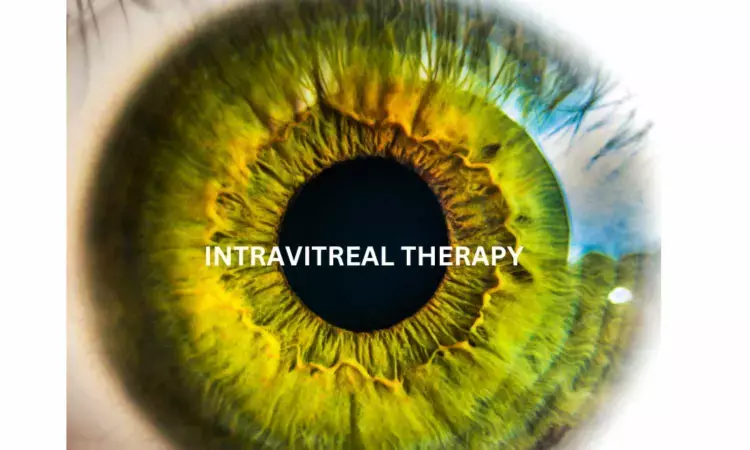- Home
- Medical news & Guidelines
- Anesthesiology
- Cardiology and CTVS
- Critical Care
- Dentistry
- Dermatology
- Diabetes and Endocrinology
- ENT
- Gastroenterology
- Medicine
- Nephrology
- Neurology
- Obstretics-Gynaecology
- Oncology
- Ophthalmology
- Orthopaedics
- Pediatrics-Neonatology
- Psychiatry
- Pulmonology
- Radiology
- Surgery
- Urology
- Laboratory Medicine
- Diet
- Nursing
- Paramedical
- Physiotherapy
- Health news
- Fact Check
- Bone Health Fact Check
- Brain Health Fact Check
- Cancer Related Fact Check
- Child Care Fact Check
- Dental and oral health fact check
- Diabetes and metabolic health fact check
- Diet and Nutrition Fact Check
- Eye and ENT Care Fact Check
- Fitness fact check
- Gut health fact check
- Heart health fact check
- Kidney health fact check
- Medical education fact check
- Men's health fact check
- Respiratory fact check
- Skin and hair care fact check
- Vaccine and Immunization fact check
- Women's health fact check
- AYUSH
- State News
- Andaman and Nicobar Islands
- Andhra Pradesh
- Arunachal Pradesh
- Assam
- Bihar
- Chandigarh
- Chattisgarh
- Dadra and Nagar Haveli
- Daman and Diu
- Delhi
- Goa
- Gujarat
- Haryana
- Himachal Pradesh
- Jammu & Kashmir
- Jharkhand
- Karnataka
- Kerala
- Ladakh
- Lakshadweep
- Madhya Pradesh
- Maharashtra
- Manipur
- Meghalaya
- Mizoram
- Nagaland
- Odisha
- Puducherry
- Punjab
- Rajasthan
- Sikkim
- Tamil Nadu
- Telangana
- Tripura
- Uttar Pradesh
- Uttrakhand
- West Bengal
- Medical Education
- Industry
No substantially different relative risk for kidney failure among three Anti-VEGF Drugs, finds study

A retrospective cohort study published in Ophthalmology Retina compared the risk of kidney failure among three commonly used anti-vascular endothelial growth factor (VEGF) drugs in patients with various eye diseases. The study aimed to assess whether there were differences in the relative risk of kidney failure associated with aflibercept (Eylea), ranibizumab (Lucentis), and bevacizumab (Avastin) when used for intravitreal injections.
This study was conducted by Cai CX and colleagues. Anti-VEGF drugs are a mainstay in the treatment of several eye diseases, including diabetic retinopathy, age-related macular degeneration, and retinal vein occlusion. However, concerns have been raised regarding their potential systemic effects, particularly on renal function. This study sought to address whether there were differences in kidney failure risk among these drugs.
The retrospective cohort study analyzed data from over 240,000 adult patients who received intravitreal anti-VEGF medications for various eye conditions. The study focused on patients who had received at least 3 monthly treatments and were newly treated with anti-VEGF agents. The primary outcome assessed was the incidence of kidney failure among patients treated with aflibercept, ranibizumab, and bevacizumab.
The key findings of the study were as follows:
The study found no substantially different relative risk for kidney failure among the three anti-VEGF drugs.
The hazard ratios for kidney failure were similar across comparisons: 1.01 for aflibercept versus ranibizumab, 0.95 for ranibizumab versus bevacizumab, and 0.95 for aflibercept versus bevacizumab.
The safety profile of all three drugs was consistent, with no serious or severe treatment-emergent adverse events reported.
The most commonly reported adverse events were somnolence and dizziness.
While all three drugs are effective for treating eye diseases, there are differences in cost.
Bevacizumab, although off-label, was found to be significantly cheaper compared to aflibercept and ranibizumab.
The study provides reassurance to clinicians regarding the safety of anti-VEGF drugs concerning kidney failure risk. The findings suggest that clinicians can choose these drugs based on other factors, such as efficacy and cost, without concerns about differential renal risks. Further research may be needed to explore the long-term effects of these drugs on renal function.
Reference:
Cai, C. X., Nishimura, A., Bowring, M. G., Westlund, E., Tran, D., Ng, J. H., Nagy, P., Cook, M., McLeggon, J.-A., DuVall, S. L., Matheny, M. E., Golozar, A., Ostropolets, A., Minty, E., Desai, P., Bu, F., Toy, B., Hribar, M., Falconer, T., … Ryan, P. B. (2024). Similar risk of kidney failure among patients with blinding diseases who receive ranibizumab, aflibercept, and bevacizumab: an OHDSI Network Study. Ophthalmology Retina. https://doi.org/10.1016/j.oret.2024.03.014
Dr Riya Dave has completed dentistry from Gujarat University in 2022. She is a dentist and accomplished medical and scientific writer known for her commitment to bridging the gap between clinical expertise and accessible healthcare information. She has been actively involved in writing blogs related to health and wellness.
Dr Kamal Kant Kohli-MBBS, DTCD- a chest specialist with more than 30 years of practice and a flair for writing clinical articles, Dr Kamal Kant Kohli joined Medical Dialogues as a Chief Editor of Medical News. Besides writing articles, as an editor, he proofreads and verifies all the medical content published on Medical Dialogues including those coming from journals, studies,medical conferences,guidelines etc. Email: drkohli@medicaldialogues.in. Contact no. 011-43720751


